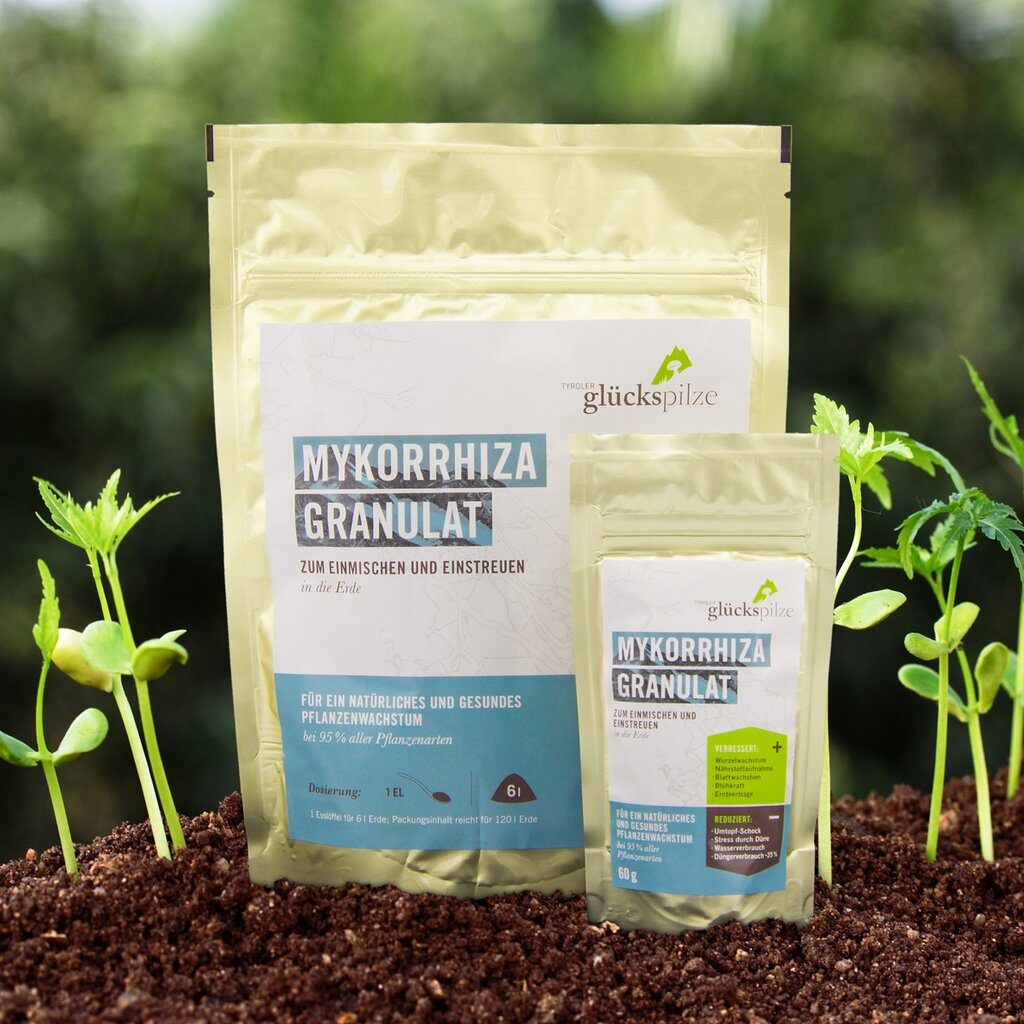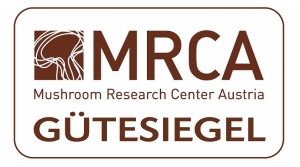Product description
Mycorrhiza granules contain 13 carefully selected endo- and ectomycorrhizae as well as Trichoderma fungus species. Thus every plant finds its suitable symbiotic partner. After a short time you will notice the advantages of the symbioses.
The plant develops a generally stronger growth and the leaves are a richer green. Pollutants in the soil are also broken down and converted by the fungus so that they are not absorbed by the plant. In order to improve the germination of the mycorrhizal spores and their effectiveness, a high-quality bio-stimulator package was added, which contains kelp food, humus, vitamins and amino acids.
Mycorrhizal granules are particularly suitable for mixing with soil and substrates that are used for potted and bedding plants, are bio-certified and an enrichment for every plant breeder.
Application
Application of mycorrhizal granules – English
Anwendung Mykorrhiza Granulat -Deutsch
In which symbiotic plants is it used?
Acts on 95% of all plant species such as:
Maple, acacia, apple, artichoke, eggplant, avocado, bamboo, banana, basil, begonia, birch, pear, beans, beech, boxwood, chilli, chrysanthemum, oak, yew, peas, strawberries, alder, ash, fern, flax, Spruce, forsythia, fuchsia, gardenia, geranium, barley, grasses, cucumber, hemp, hazelnut, hibiscus, raspberry, millet, currant, coffee, cocoa, cacti, camellia, nasturtium, carrot, potato, chestnut, cherry, kiwi, clover, Garlic, coconut, lettuce, herbs, pumpkin, leek, larch, privet, lilies, linden, laurel, snapdragon, alfalfa, magnolia, mahogany, corn, sequoia, almond, mango, apricot, mulberry, mimosa, myrtle, okra, olives, Palms, poplar, passion fruit, peach, pistachio, plum, plane tree, morning glory, rice, marigold, black locust, roses, sage, shallots, celery, soy, sunflowers, holly, succulents, sweet potato, tobacco, tea, tomato, elm, violet, Walnut, willow, poinsettia, grapes, hawthorn, wheat, yucca, citrus fruits, onions l (all types of bulbous plants), cypress trees and many more.









